Cuiaba(Arena Pantanal)
The capital of the state of Mato Grosso, Cuiaba is located in the exact geographic centre of South America, an equidistant 2,000 km from the Atlantic and Pacific oceans. Established in 1719 during the Brazilian Gold Rush, its centre still houses several historical buildings that have been declared national heritage sites in 1992.
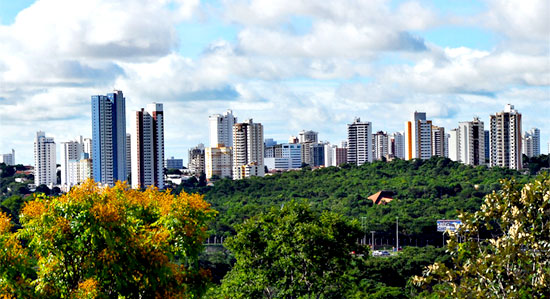
For about 250 years, Cuiaba stood quietly as a small city in the Centre-western region of Brazil. The scenario changed promptly in the 20th century, when the federal government implanted an expansion plan towards the interior of the country, which resulted in roadways connecting Mato Grosso to the states of Goias and Sao Paulo. In 30 years, the population increased dramatically from around 57,000 inhabitants in 1960 to 400,000 in 1990. The vast 3,538-square kilometre area of Cuiaba is currently the home of 544,737 people.
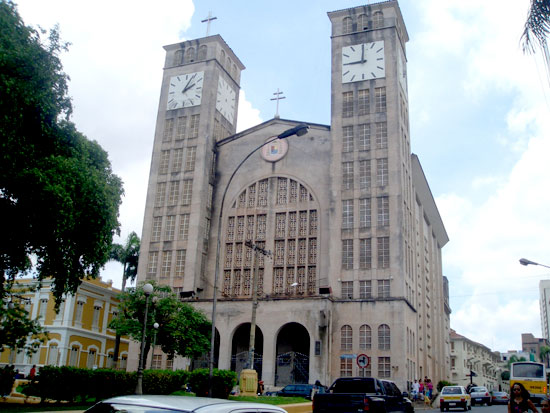
Cuiabá stands on a privileged location for tourists, as it confronts three of Brazil's most important and characteristic ecosystems: the savannahs of the Cerrado; the wetlands of the Pantanal; and the Amazon. With such a massive presence of nature, it is no wonder, then, that Cuiaba has been nicknamed ‘Green City'. The cuiabanos also neighbour one of Brazil's most startling landscapes, the mountain range of Chapada dos Guimaraes, where archaeological sites and a 3,300-square kilometre National Park attract thousands of visitors every year.
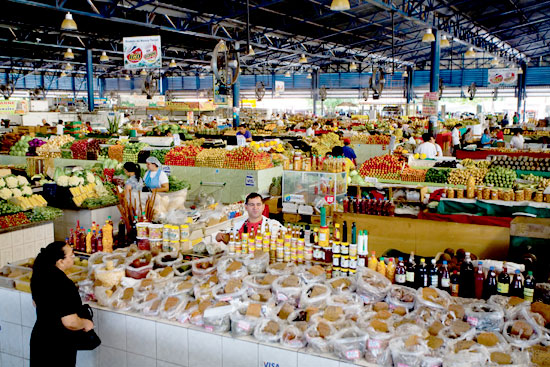
The Chapada dos Guimaraes is one of the reasons why Cuiabá is considered the hottest state capital in Brazil, as the mountain range blocks the polar masses and helps driving temperatures to over 40º C during the summer.
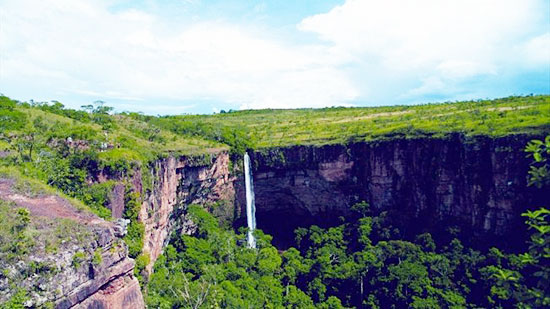
Football
Mixto Esporte Clube, from Cuiabá, is the most important club within the state of Mato Grosso and holds one of the biggest fan bases in the Centre-western region of Brazil. The Tigre (Tiger) hold the record for most state titles, and played in the first division of the Campeonato Brasileiro for 11 straight seasons from 1976. However, Mixto have not rejoined the elite since. Their main city rivals are Cuiaba Esporte Clube and Clube Esportivo Dom Bosco, besides Operário Futebol Clube, from the neighbouring city of Várzea Grande.
The Jose Fragelli stadium, also known as the Verdão (Big Green), was the most important stadium in Mato Grosso until 2010. The 45,000-seater ground was built in 1976, and has hosted four of Brazil's friendlies; the most recent one a 6-1 win over Iceland in March 2002. For the 2014 FIFA World Cup, the Verdão will be replaced by the scintillating Arena Pantanal.
Owner: Cuiaba (MT), Mixto EC
Capacity: 42968
Country: Brazil
City: Cuiaba
Address: Cuiabá - MT, Brazil
Value: US $240 million
Inauguration: 2014
Average temperature in June: 24.1°C
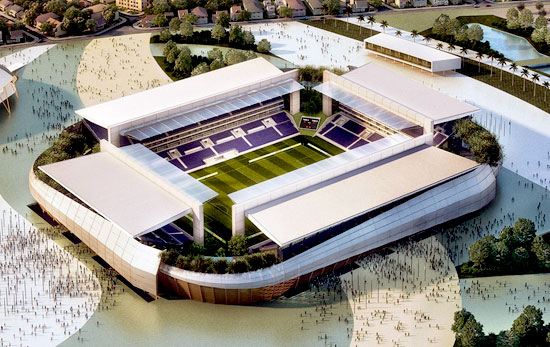
Profile:
Given that the stadium in Cuiaba set to host matches at the 2014 FIFA World Cup™ neighbours the flora- and fauna-rich region that is the Pantanal, it is no surprise that sustainability has been a central theme of the construction and maintenance of the new arena from the project’s very beginning.
This sustainable approach has been applied to every detail along the way, with the wood used in the construction coming from certified sources and the waste and rubbish produced being recycled – thus enabling them to be reused within the building project and its access routes. The site’s air and soil quality is also constantly monitored, all of which means the stadium’s nickname of ‘O Verdão’ (The Big Green) is particularly appropriate.
Especially built for Brazil 2014 – when it will host four matches – the Arena Pantanal will boast a capacity of 42,968 and will occupy the site where the Estadio Jose Fragelli used to be. This multi-purpose stadium will have an adaptable structure, which can be reduced in size once Brazil 2014 is over. The covered arena is thus an ideal setting to host a variety of events such as shows, exhibitions and trade fairs, while local clubs such as Mixto and Operario may also take advantage of the new venue.
Matches:
13/06/2014 18:00 Chile vs. Australia
17/06/2014 18:00 Russia vs. Korea Republic
21/06/2014 18:00 Nigeria vs. BosniaHerzegovina
24/06/2014 16:00 Japan vs. Colombia
Local hero:
Liverpool’s Brazilian international Lucas Leiva was born in Dourados, which is a neighbouring town in the state of Mato Grosso. He began his career at Gremio and moved to Anfield for £5m in 2007, a vital member for both club and national side.

Legends pay tribute to Gerrard & Lahm
International retirements follow Wo...
- Year
- Winner
- Runner-up
- Third place
